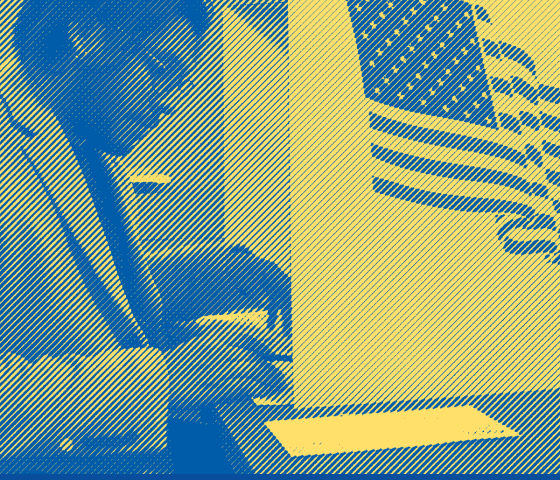On Tuesday, Iowa Gov. Kim Reynolds released a statement in response to the ACLU of Iowa and Lambda Legal filing a lawsuit to block provisions of SF 496. This sweeping Iowa law seeks to silence LGBTQ+ students, erase any recognition of LGBTQ+ people from public schools, and ban books with sexual or LGBTQ+ content.
She said, "Protecting children from pornography and sexually explicit content shouldn't be controversial. The real controversary [sic] is that it exists in elementary schools. Books with graphic depictions of sex acts have absolutely no place in our schools. If these books were movies, they'd be rated R. The media cannot even air or print excerpts from these books because the content is offensive and inappropriate, yet they promote the narrative that they're good for kids."
A statement from Lambda Legal and the ACLU of Iowa in response is below.
"The Governor’s statement is inaccurate. This lawsuit has nothing to do with access to obscene or pornographic material. To the contrary, it is about protecting students to have a safe and affirming school environment and accurate learning materials. Moreover, Iowa law already bans obscene material from youth, and schools already make careful determinations as to what materials are appropriate for their students.
"Educational professionals have been making those determinations for years and these decisions should continue to be made by educators, not politicians. What SF 496 does is different. This law targets books that reflect LGBTQ characters, and books that allow students to see themselves reflected in stories. This law also bans many classic books and books commonly found on AP reading lists and college reading lists, like The Color Purple, Animal Farm, 1984, and The Picture of Dorian Gray.
"This law does not protect students—it puts them in danger. This law ignores the expertise and experience of educators.
"It is fundamentally un-American for the government to ban thoughts and ideas, particularly forbidding educational content curated and meant for students. Historically speaking, people who have sought to ban books have typically not been on the right side of things."
